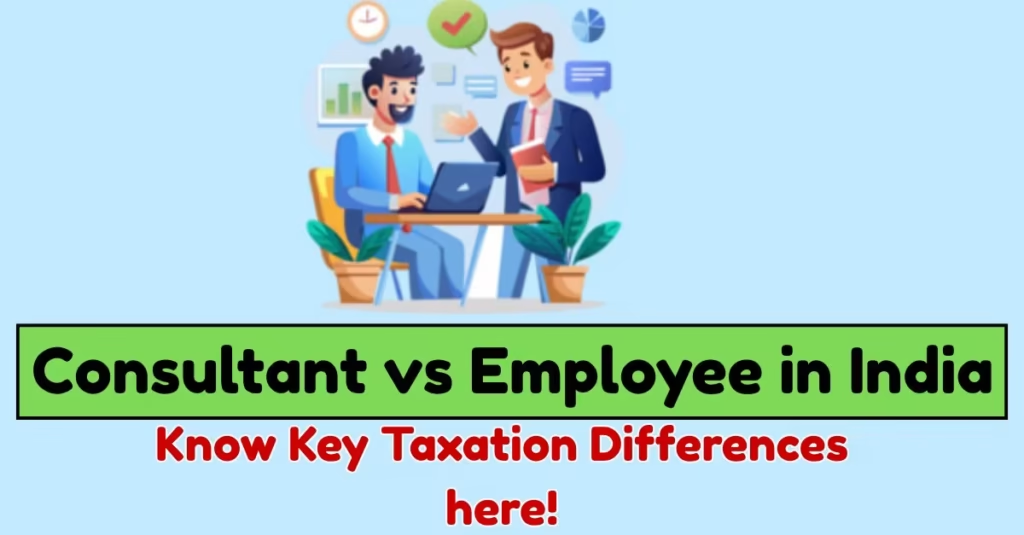Consultant vs Employee in India: Choosing between hiring a consultant or an employee in India can be tricky for businesses. Both come with different rules, tax treatments, and compliance needs. Let’s break it down in a simple way to help you understand the key differences, especially around TDS, PF, ESIC, and other compliances.
Who is a Consultant, and Who is an Employee?
A consultant is a self-employed professional hired for specific tasks or projects. They work independently, often on a contract basis, and aren’t on your company’s payroll. An employee, on the other hand, is a full-time or part-time worker on your payroll, entitled to benefits like leave, bonuses, and social security.
The choice impacts how you handle taxes and benefits, so let’s dive into the details.

Consultant vs Employee TDS (Tax Deducted at Source)
For consultants, TDS is deducted under Section 194J of the Income Tax Act, 1961. If their annual payment exceeds ₹30,000, you deduct 10% TDS (or 2% for technical services) before paying them. They file their taxes independently and can claim TDS credits when filing ITR by July 31 each year.
Employees have TDS deducted under Section 192, based on their income slab (0% to 30%). You calculate this monthly, considering their salary, allowances, and exemptions like HRA. Employees submit Form 16 by June 15 annually, which they use for tax filing.
Consultant vs Employee Provident Fund (PF)
Employees earning up to ₹15,000 per month (basic salary + dearness allowance) must be enrolled in the Employees’ Provident Fund (EPF) under the EPF Act, 1952. Both employer and employee contribute 12% of the salary to PF. Contributions are mandatory for companies with 20 or more employees. The due date for PF remittance is the 15th of every month.
Consultants don’t get PF benefits. They manage their own savings or retirement plans, which means no PF compliance for businesses hiring them.
Consultant vs Employee ESIC (Employees’ State Insurance)
If an employee’s monthly salary is ₹21,000 or less, they’re covered under the Employees’ State Insurance Act, 1948. Employers contribute 3.25% and employees 0.75% of the salary for medical and other benefits. ESIC payments are due by the 15th of each month.
Consultants aren’t eligible for ESIC, so businesses skip this compliance when engaging them.
Other Compliances
Employees require additional compliances like gratuity (after 5 years of service under the Payment of Gratuity Act, 1972) and leave policies under state-specific Shops and Establishments Acts. Consultants, being contractual, don’t qualify for these benefits, reducing paperwork for employers.
Conclusion
Hiring a consultant means less compliance but higher TDS rates and no benefits like PF or ESIC. Employees involve more regulations but ensure long-term stability. Choose based on your business needs, keeping deadlines like monthly PF/ESIC payments (15th) and annual Form 16 (June 15) in mind.
